Swami Vivekananda was the foremost among the spiritual and national leaders that India has produced in recent times. A unique aspect of his greatness is that he did not confine himself to spirituality in the traditional sense of the term. He had a large heart that was concerned about the physical and mental wellbeing of the masses in society. Both Sri Ramakrishna Paramahamsa and Swami Vivekananda believed in and preached that ‘Service to Man is Service to God.’ Inspired by this message, hundreds of institutions and thousands of devotees today are wholeheartedly engaged in serving their fellow beings.
Providing education is one of the most significant services that one can render to society. With education, a person becomes capable of fulfilling basic needs like food, clothing and shelter. Swamiji explains the concept of education in both affirmative and negative terms. He says: ‘Education is not the amount of information that is put into your brain and runs riot there, undigested, all your life. We must have life-building, man-making, character-making assimilation of ideas. If you have assimilated five ideas and made them your life and character, you have more education than any man who has got by heart a whole library.’1 Again he declares: ‘The ideal of all education, all training, should be this man-making. But, instead of that, we are always trying to polish up the outside. What use in polishing up the outside when there is no inside? The end and aim of all training is to make the man grow.’2
The approaches to education followed by schools and universities are based on the assumption that education is the process of feeding information into the brain of the learner. Hence the marks obtained by a student, which reflect the information his teacher has drilled into his brain and the power of his memory, are considered to be a measure of the quantity and quality of his education. Most present-day teachers have themselves been ‘taught’ in the aforesaid manner. Universities design courses for training teachers to ‘drill better’, and the examining and certifying bodies develop better means of measuring and improving ‘drilling efficiency’.
However, efforts have been going on both before and after Independence to dispense with the Macaulay system of education and revive the traditional Indian system. Thanks to the strong views expressed by Swami Vivekananda, the efforts of his disciples like Sister Nivedita, and institutions run by the Ramakrishna Order and other admirers, thousands of students are today receiving man-making education. The Vivekananda Educational Society in Chennai is one such organisation. Inspired by Swamiji’s ideas and ideals on education, it is striving to provide man-making and character-building education to students in Chennai and other places in Tamil Nadu.
The Society was founded in 1972 by some ardent followers of Swamiji who were closely associated with the creation and establishment of the Vivekananda Rock Memorial in Kanyakumari. The Society now runs 22 schools and manages two schools for other organisations. It serves about 35,000 families.
To implement Swami Vivekananda’s ideas on education, the Society developed a model covering six aspects of a child’s development. This model enables each child to develop his or her whole personality. These aspects of development are:
- Physical Development
- Intellectual Development
- Talent Development
- Spiritual Development
- Patriotism
- Love of God
These dimensions of a child’s personality are symbolised by the petals of a flower. Every school activity is designed to develop one or more of these six aspects.
Unique and Basic Feature of Our System: Mechanism for the Manifestation of Perfection
Swamiji said: ‘Education is the manifestation of the perfection already in man.’3 Hence a teacher’s job is not to force-feed a child with information or other such inputs. A teacher should allow the perfection to blossom like a flower and express its beauty and fragrance to the world. Swamiji’s message to teachers is very clear: ‘Like fire in a piece of flint, knowledge exists in the mind; suggestion is the friction which brings it out.’4
Enabling children to learn and blossom in this manner has not been easy. The Society recruits teachers who have undergone formal teacher training and then trains them in the ‘Vivekananda Way’, or the ‘play-way’, method of teaching. Great efforts have gone into providing orientation to teachers in this methodology. For this purpose, the Society has founded its own in-house teacher training institution, called the ‘Vivekananda Prajna Vikas’, or the Vivekananda Institute of Educational Research and Training.
To allow children to take their first step in formal education, i.e., in kindergarten and primary classes, our schools adopted the ‘Sishu Vatika’ system of teaching and learning, a unique system evolved by Vidya Bharati, the largest NGO serving in the field of education in India, to which our schools are affiliated. This system allows a teacher to engage children through games, stories, songs, dances, and various other activities. Classrooms are designed to accommodate such activities, and various pictures and objects are used to enable children to feel, visualise, hear, explore, and connect with the various ideas taught. These activities are not confined to classrooms alone. The teacher takes the students out to play in a specially designed playground ‘children’s corner’, which also promotes group activities and team building. In this system, children do not compete with each other, but work together as groups to bring out their full potential.
The performance of children is measured without any formal examination and is reported to parents. These reports are more of a record of the interests of children rather than ‘marks and grades’. In this system, the teacher plays a very gentle but vital role, which can be described in Swamiji’s own words, ‘Like the gentle dew that falls unseen and unheard, and yet brings into blossom the fairest of roses …’5 Through these efforts, children naturally and spontaneously start communicating with their teachers, fellow students, and parents at home. They learn languages and the use of numbers, and expand their knowledge base on their own. The base set by this Sishu Vatika system is the foundation for the development of the six aspects of personality. The Sishu Vatika system of learning is depicted in our logo as a blossoming flower.
The efforts made by the Vivekananda Educational Society schools in developing the specified aspects of personality in children can be better understood with brief descriptions.
Physical Development
śarīramādyaṁ khalu dharmasādhanam—body is the foremost instrument for doing good deeds or practicing Dharma,’ says the great poet Kalidasa. Our schools give equal importance to playing games on the playground and learning mathematics in the classroom. The competence and performance of Physical Education teachers are monitored and upgraded frequently. VES has appointed a Shareerik Coordinator (Coordinator for Physical Development) to oversee the physical education training in schools, the development and maintenance of playgrounds and play equipment, the participation of students in various competitions, etc. Some of the practices and features of VES schools in the area of physical development are:
* Provision of specially allotted play areas for very young children, with colourful and safe play equipment
* Opportunities to play games and practice athletics outside school hours
* Encouragement of children to compete primarily with themselves, and thus gradually improve their strength, confidence, and skills without undue stress.
* Physical activity combined with music and dance—such as band, lezium, etc., where even strenuous activities become enjoyable.
* Encouragement of parents to learn yoga and participate in mass yogasana and suryanamaskar programmes on the school premises. Some schools also have a gymnasium for the mothers of students studying in the school.
* Special and specific attention to yoga and yogasana training for staff and students, and participation of students, staff, parents, and the local public in Yoga Day functions every year.
‘Gosh’ is an activity that consists of playing instruments in a group and marching in rhythm to the music. Students are encouraged to take part in this activity to build physical strength, physical coordination, team spirit, confidence and skill in playing musical instruments.
Intellectual Development
The schools follow the curriculum designed by NCERT/CBSE. Efforts are made to improve the methodology of teaching through activities, laboratory experiments, observations, and audio-visual presentations.
* Every school has well-equipped laboratories and libraries for science. Mathematics laboratories and language laboratories encourage activity-based learning.
* There is a structured syllabus for learning Vedic mathematics.
* Regular quiz competitions are held to improve mental powers like memory and concentration.
* Students are encouraged to form clubs such as English literature clubs and physics clubs to informally share their knowledge and thus expand it further.
* Teachers of various subjects in these schools undergo periodic training to upgrade their knowledge and sharpen their teaching skills to encourage participative learning by students. One such training programme for newly recruited teachers is named ‘Upasana’. Its purpose is to explain Swami Vivekananda’s ideology to new teachers and to make them realise that they have embarked on the vital task of shaping the future of the nation.
Talent Development
The weekly timetable of these schools has important slots allocated for music, dance, art, crafts, etc. Schools conduct talent shows for kindergarten and primary-level classes separately to expand the participation of students and their parents. Talent development activities not only promote selfconfidence, but also nurture other virtues like patriotism and love for God. The themes for these activities include patriotic songs, prayers, and bhajans. The music, dance, and theatre shows are generally about national heroes or spiritual luminaries from epics, puranas, and even modern times.
Quiz competitions are held on Indian culture, history, and ancient literature. Students are taught Sanskrit and are encouraged to converse in it.
Spiritual Development and Love of God
Love for God is expressed in serving Him. But how to serve God? Swamiji tells us to serve Him through our fellow beings. Hence the schools take every opportunity to tell the children about the service rendered by great leaders and also common people. Opportunities are created for them to interact with social workers and learn about their passion for serving others and public causes. Spiritual personages, particularly from the Ramakrishna Order, are regularly invited to address the students.
Together with the alumni, the schools conduct medical camps, run free tuition centres for students of government schools, clean temples and tanks, distribute provisions to orphanages and old-age homes, and also serve the inmates of the old-age homes
Apart from these activities, our schools also conduct a residential camp for students after they pass class IX. Aptly named ‘Deeksha’, the camp requires students to visit a village or slum. Through surveys and interaction with the residents, they study the living conditions. This is done to sensitise the students about the living conditions of economically and socially underprivileged sections of society. They later discuss possible intervention measures to improve conditions. These measures may take the form of improving sanitation, cleaning tanks, conducting medical camps, etc. When some students have told their parents about the living conditions of villages and slums, the parents themselves have subsequently taken up various service activities to improve the lives of the inhabitants.
Many students have developed a serviceminded attitude following these camps. We believe that they will serve public causes later in their lives. These Deeksha camps culminate in our schools adopting a temple or a village and working for its upliftment.
Patriotism
Reverence and respect for the Motherland is inculcated in the students from the very beginning of their schooling. The birthdays of great men and women of India are celebrated in a meaningful manner to communicate their messages to the students. Quiz programmes are conducted on the lives and messages of such leaders, and on the history, geography, and economics of India. Vivekananda Jayanthi, or National Youth Day, is celebrated in a grand manner in all our schools, also involving neighbouring schools. Under the ‘Adopt a Hero’ scheme, each of our schools has adopted a hero to commemorate the memory of a war hero who has laid down his life in the service of our Motherland.
Gurukula Education
‘My idea of education is personal contact with the teacher—Gurugriha-Vasa. Without the personal life of a teacher there would be no education.’6
The Vivekananda Educational Society, with a view to reviving the gurukula system, promoted a residential school in the outskirts of Chennai, with infrastructure for students and teachers to live on the campus. The students are guided by the teachers and spiritual personages inside and outside the classrooms, round the clock, in various activities which are designed to encourage the development of their physical, intellectual and spiritual faculties.
Expansion Is Life
Swamiji mandates that education should be taken to the doorsteps of needy children. VES followed his words and started schools in the outskirts of Chennai city, particularly in the northern and western suburbs which were underdeveloped areas at the time. For the last 20 years, the Society went to villages to start and nurture schools which have been accepted by the local people and are developing at a rapid pace. VES has adopted a unique Mother-Child Plan for expanding its educational activities. Under this plan, every well-developed school (called a Mother School) that has adequate financial and manpower resources will start one or more schools (called Child Schools) in villages or areas where underprivileged people live. The Mother Schools nurture the Child Schools until they attain a state of self-sufficiency.
Macaulay to Vivekananda
This shift from the Macaulay system to the Vivekananda system has not been easy. The schools have to cope with and balance the demands of various boards of affiliation and examinations, the expectations of parents, and the attitudes of teachers. Behind the Society’s growth lies the dedicated work of volunteers, teachers, and philanthropic supporters. We at the Vivekananda Education Society hope that the Vivekananda Way of education will spread across the country and enrich the lives of our future generations.
References
- The Complete Works of Swami Vivekananda, Advaita Ashrama, Kolkata, Mayavati Memorial Edition, [hereafter CW] Vol. 3, p,.302
- CW, Vol. 2, p, 15
- CW, Vol. 4, p, 358
- CW, Vol. 1, p, 28
- CW, Vol. 3, p, 274
- CW, Vol. 5, p, 224
Source : Vedanta Kesari, December, 2016

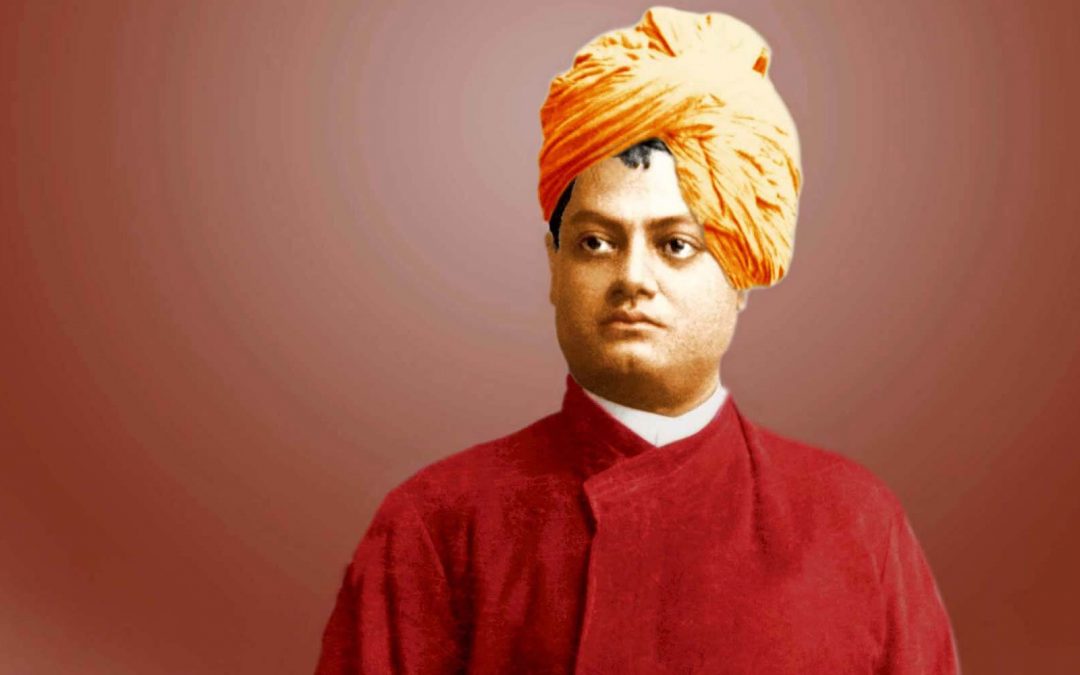
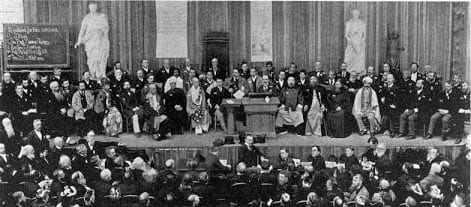
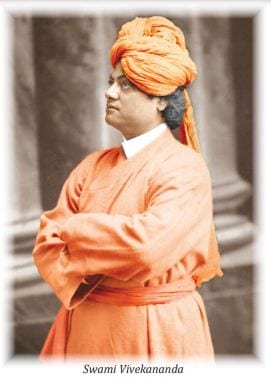
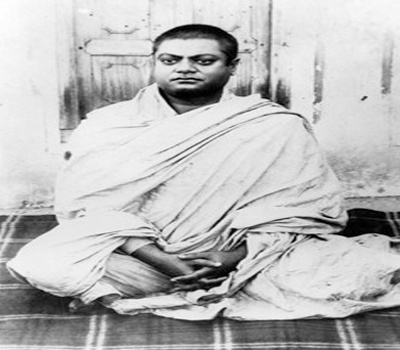

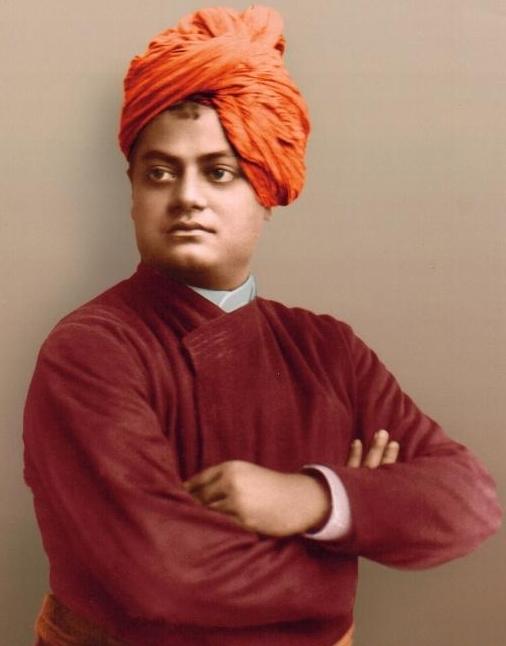
Leave A Comment